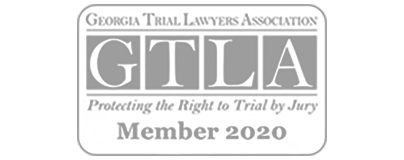Georgia Medical Malpractice Attorney
Medical malpractice can be found in any field of medicine where a doctor or other medical professional has failed to meet the acceptable standards of care and such failure causes injury to the patient. It happens in the best hospitals and clinics. While medical malpractice is most prevalent in the areas of obstetrics-gynecology, neurosurgery, emergency care, orthopedics, and other medical specialties, medical malpractice can happen in any area of medicine. When medical mistakes happen, a patient and their loved ones could receive financial compensation for their injuries and loss.
If you suspect that you or a loved one is the victim of medical malpractice, do not hesitate to contact us for a free consultation. Our medical malpractice lawyers have the experience and expertise needed to get you the compensation you deserve.
At The Jewkes Firm, we have experienced medical malpractice attorneys who can help you and your family get the best result possible from an injury or wrongful death claim. We can help you determine if you have a legal case for medical malpractice. Contact us at (770) 771-5130 to get an immediate free consultation.
Suffering From Medical Negligence? Contact Us For A Free Consultation
Suffering From Medical Negligence?
Common Forms of Medical Malpractice and Negligence
Every day, patients across the country experience medical misconduct or receive substandard medical care that leads to serious injury, illness, or death. Malpractice takes many forms. Some types of negligence are harder to recognize, especially when the patient does not discover the harm until weeks, months, or even years later. Doctors, nurses, technicians, or other health care practitioners can commit negligent acts that cause patients to suffer serious consequences.
Some of the most common medical malpractice suits are brought due to the following forms of misconduct:
Surgical Errors
Many types of medical malpractice involve surgical errors. Such mistakes can range from operating on the wrong patient or body part to failing to provide adequate post-surgical care. In addition, unsanitary conditions can cause illness and serious infections.
Medication Errors
Many healthcare professionals make mistakes when providing treatment to patients. This includes medication errors when doctor may prescribe the wrong drug or dosage. Patients aren’t guaranteed that their medical issues will be resolved after treatment. However, if a situation is made worse because of negligent acts by a medical professional, then the patient has a right to hold the medical provider accountable.
Diagnosis Errors
The most frequent form of malpractice is a misdiagnosis or failure to diagnose a condition that can cause serious harm. For example, suppose a doctor or technician fails to diagnose a fractured knee or ankle during an emergency room visit. As a result, the patient could lose mobility in the affected leg and/or face a lifetime of chronic pain. Furthermore, failing to diagnose a serious disease can cause severe illness or death.
Birth Injuries
Birth related medical malpractice occurs when hospital staff members act negligently or fail to use reasonable care, causing injury to the mother or child during pregnancy or delivery.
Medical Records Errors
If an employee of the hospital or other staff member makes an error when reading from or writing a patient’s medical record, the patient may ultimately receive an incorrect medication or dosage. Dosage errors can cause internal damage, seizure, and significant long-term injuries. This form of malpractice occurs in many hospitals.
Consent Issues
The law demands that patients be informed of their treatment options and that they willingly consent to that treatment. Medical malpractice may occur in violation of this requirement in one of two ways. First, a doctor may act against a patient’s direct wishes. Second, a patient may not be made fully aware of the details of their treatment before agreeing to it.


GEORGIA PERSONAL INJURY LAWYER NEAR ME
Potential Steps to Take After a Medical Malpractice Injury
There are certain things you can do after you suffer an unexpected injury to support a future medical malpractice claim. Remember, the decisions you make immediately following your injury will determine how successful any future claims for damages will be.
Seek Medical Attention. Your health and wellness is more important than any lawsuit or claim. Furthermore, keeping up with treatment will help your attorney later understand the full extent of your medical harms, a very important aspect of any personal injury case, including medical malpractice.
Obtain Medical Record and Document the Injury. Obtaining a copy of your medical records soon after an incident of malpractice will prevent anyone from tampering or altering your records to hurt your claim. Take photographs, write down your personal experiences, speak with witnesses, and obtain any documents that are relevant to your injury. Your attorney will use this information as a starting point for an in-depth investigation.
Refuse Early Settlement Offers. Insurance companies may try to manipulate a difficult situation and get you to accept a low settlement offer. Resist the temptation to accept. We know that times are tough and that this money could be very helpful at the present moment, but this compensation will not be enough to address all of your needs. Insurance companies are not on your side and will do anything to minimize the money you receive.
Contact with a Medical Malpractice Claim Lawyer in Georgia. Hiring an attorney to handle your medical malpractice claim is the best thing you can do if you want to maximize the compensation you receive. Our Jewkes Law Firm, LLC, injury attorneys have been going up against insurance companies since long. We know which tricks they use to minimize payouts and we will make sure that their attempts are unsuccessful.
We will thoroughly investigate your case, determine the best legal strategy, and leverage the at-fault party into offering you a fair settlement. If you are not happy with the offers you receive, we will take your case to court. We thrive in the courtroom and are confident we can secure a meaningful award from a judge or jury.

Damages in Medical Malpractice Cases
Damages are an essential element of a medical malpractice claim. Medical malpractice damages can include recovery for pain and suffering, medical bills, and reduced quality of life. A patient injured by medical malpractice can recover a wide variety of damages — from medical bills to the loss of enjoyment of life to future earnings losses.
The three categories of damages available in medical malpractice cases are general, special, and punitive.
Non-Economic Damages
These damages attempt to provide compensation for mental anguish, lost enjoyment of life, and loss of the love and support of a spouse. There are no definite rules when it comes to calculating the dollar value of non-economic damages, but factors such as the duration and degree of physical suffering, witness testimony that supports the degree of suffering, and the patient’s age may al be considered when estimating the amount.
The most common examples are:
- Mental and physical pain and suffering
- Loss of consortium
- Loss of enjoyment of life
- Disablement or inability to perform daily activities
Economic Damages
Special damages cover the more quantifiable expenses caused by the medical malpractice, including medical bills and past missed work. Although there is often some guesswork involved, particularly when it comes to future medical expenses, economic damages are typically more exact than other damages. A legal expert will still be useful for proper recovery, but sometimes simply submitting a certified copy of the medical bill is enough, depending on the facts of the case.
Punitive Damages
In order to claim punitive damages, the general requirement is this: The doctor must have known that he or she was behaving in a harmful manner. For instance, a surgeon intentionally leaves a sponge in the patient during surgery in order to create a reason for a second surgery to remove the sponge. This medical malpractice would warrant punitive damages. The amount of punitive damages is up to the court or jury.
Need a Free Consultation? Need a Skilled Attorney?
Free Consultation
Call (770) 771-5130
If you’ve been injured, you need to hire the best legal care to assist you with your claim. Get a FREE consultation today!
Statute of Limitations for Medical Malpractice in Georgia
Under Georgia O.C.G.A. § 9-3-71(a) statute, the statute of limitations on medical malpractice cases is normally two years from the date of injury or death.
While two years is the standard time limit, certain circumstances can arise which can extend this statute of limitations further.
If a claim is not filed during this window of time, the victim loses his or her right to pursue legal action. This is a critical factor of every case and must be considered before a lawsuit is filed.
How Does a Medical Malpractice Lawsuit Work?
A medical malpractice lawsuit can be filed shortly after a patient is injured by a doctor or medical professional who fails to provide standard medical care. An injured patient can then file a medical malpractice lawsuit with the help of a qualified medical malpractice law firm.
A unique aspect of Georgia’s medical malpractice law is that a lawsuit (or complaint) alleging professional negligence must be filed together with an affidavit of a similarly situated medical professional. This affidavit must contain at least one allegation of professional negligence (or breach of standard of care) against the accused medical provider. See O.C.G.A. 9-11-9.1. It is important to consult with a competent expert medical professional prior to filing suit to make sure the affidavit is correct and timely. Failure to file the affidavit may result in the judge tossing the entire lawsuit.
Litigation will then proceed through the following phases:
- Investigation. All medical records, notes, photos, and anything else that can help the attorney figure out what went wrong will be looked at. After looking at al the information, the attorney will likely reach out to medical experts who can write reports in support of the case.
- Discovery. During the discovery phase, both the injured party and the defendants will request and gather information and evidence related to the case.
- Expert Witnesses. Neutral expert medical witnesses may be called to testify on the merits of a medical malpractice claim; these experts can help both parties determine the standard of medical care and whether that standard of care was breached.
- Settlement or Trial. A fair settlement is preferred to a trial, but if there is not an agreed-upon settlement, the case will proceed to trial. At trial, arguments and evidence are introduced. Experts give their opinion, and a jury decides the outcome.
While most medical malpractice lawsuits are settled before they go to court, some cases do reach trial. When this happens, a judge and jury will listen to the case and render a verdict based on the information presented.

GEORGIA PERSONAL INJURY LAWYER NEAR ME
Consult with an Attorney
Many potential claimants often wonder whether consulting an attorney is required, and while you are not legally required to seek the counsel of a legal professional, often the benefits greatly outweigh the risks.
In fact, we offer free case review so you will not have to pay for initial consultation. What’s more, consultations are completely confidential, which means you will not have to worry about other people finding out about your case if you do not want them to. Therefore, the only real downside is that you have to take time out of your day to discuss your case, which you may find very emotionally tolling, with an attorney.
As for the benefits, they include:
- Getting a professional opinion on whether you are eligible for a legal claim
- Investigating and Preparing Your Case
- Settlement Negotiations
- Determining which legal deadlines apply to your case
- Obtaining an estimate of how much your case could be worth
- Discussing potential next steps for your claim
- Learning what it will take to give yourself the best chance of success
You should contact the Jewkes Law Firm, LLC, medical malpractice attorneys if you have concerns about questionable medical care that left you or your loved one dealing with unexpected complications. We can help get answers to questions. If your experience is a case of medical malpractice, we will aggressively press a claim for maximum compensation to you.
Call our experienced attorneys now or fill out our online contact form for a prompt response. We do not charge fees in medical malpractice cases unless we recover compensation for you.
For a free and immediate legal consultation, contact us at (770) 293-7590 or (678) 688-8296.
GET A FREE CASE REVIEW
PRACTICE AREAS
AREAS WE SERVE
Frequently Asked Questions?
Do I need a personal injury attorney?
The Jewkes Firm is well-versed in effectively challenging major insurance companies on your behalf to secure the highest settlement permissible by law. Our primary objective is to ensure your optimal recovery. It is only after this point that we assess the worth of your case.
What is the deadline for filing an injury case in Georgia?
The timeframe for filing an injury case, also known as the statute of limitations, can vary significantly. As per OCGA §9-3-33, you are granted a two-year period from the date of your injuries or the passing of a family member to initiate your personal injury claim.
What is the cost to hire a personal injury attorney?
There is no upfront cost associated with hiring a personal injury lawyer. Our fees are based on a percentage of your settlement, meaning you only pay if we successfully recover compensation. Our top priority is ensuring your well-being and helping you return to your normal life.
What damages can you recover from a personal injury?
A personal injury lawyer aims to establish negligence and seek restitution for the harm caused by the liable party. Additionally, you may be entitled to compensation for funeral costs, medical expenses, and income lost if you are a family member of someone who died as a result of an injury.
Free Case Evaluation












